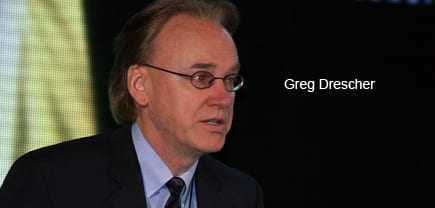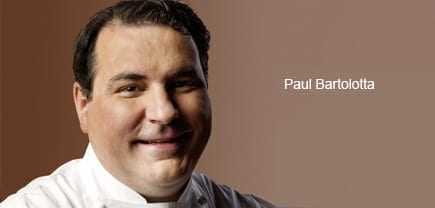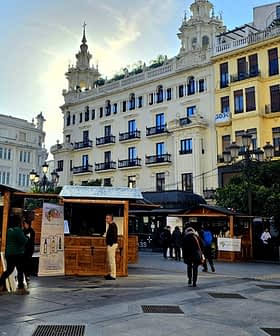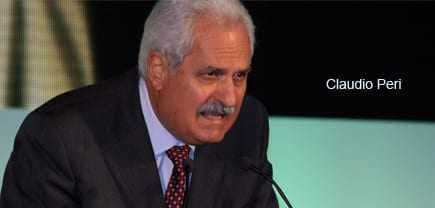
Claudio Peri, a food technology professor at the University of Milan and creator of Assocition 3E welcomed participants to the fifth edition of the Beyond Extra Virgin conference (BEV5) in Córdoba , Spain and introduced the first speaker, author Tom Mueller. “After explaining for so many years what Association 3E is and does, or would like to do,” Peri said, “I needed — we needed — to know what other informed, independent persons think of us.”
Such a need for affirmation might seem surprising for a man described as a visionary and trailblazer by the olive oil cognoscente who gathered for the international congress he founded. But while there’s no doubt Peri, along with Culinary Institute of America’s strategy director Greg Drescher and Tuscan olive oil resort owner Paolo Pasquali, can fill a room with an impressive assortment of industry and government luminaries, how 3E will actually reach its goal of establishing a higher benchmark for olive oil quality, and what the group’s ultimate aims are for doing so, remain unclear.
For the growing number of those who view the classification Extra Virgin not as the top, but as a baseline, the idea of establishing higher voluntary standards and a common language associated with what 3E calls “Super Premium” olive oils is an attractive proposition. But after seven years and five conferences, the group has yet to disclose a plan for getting 3E certified olive oils beyond a few places including the Oleotecas at Pasquali’s Villa Campestri and the CIA’s Greystone campus in Napa Valley.
The Córdoba event was set high on a hilltop with views of endless fields of sunflowers. A gala dinner hit an emotional tone that suited its dramatic castle courtyard setting with a poetry reading by Peri, every bit the professor, before Flamenco and fine dining carried the fortunate guests late into the morning hours.
More reserved, on the other hand, were the speakers during the sessions who were well aware of the mixed crowd they were playing to, including New and Old World producers, civil servants, researchers, bottlers, marketers and journalists. It was no wonder most presenters kept it close to the middle ground and few questions were asked of them afterward. In fact, questions were not often invited, and one might have expected more interactivity at an event that openly acknowledged the complexities of the tasks ahead.
Listen to the opening remarks by Spanish Environment Minister Rosa Aguilar:
Interprofesional del Aceite de Oliva Español president Pedro Barato Triguero, whose diverse organization represents those responsible for nearly half of the world’s olive oil, crafted an eloquent opening that began by describing what he called the two chapters of Spanish olive oil.
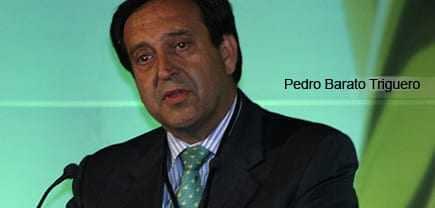
Spain’s absence at the 1956 signing of the Treaty of Rome kept the country and its manufacturers turned inward, Triguero explained. Thirty years later, as part of the European Union, Spain was forced to compete with a new set of rules while other European countries were already used to foreign markets and trade.
This late start would in part explain why “Spanish Olive Oil” was never promoted as such (to the chagrin of a few conference attendees who objected to that fact), like those “Made in Italy,” Greece and, now, America, Australia, Chile and Argentina.
Listen to the opening address by Interprofesional del Aceite de Oliva Español president Pedro Barato Triguero:
Triguero said since joining the European Union in 1986 the Spanish olive oil sector has carried out a massive restructuring and taken big steps toward production excellence to make up for lost time. Since 1986 production has tripled (from 493,000 tons in 1986 to 1.4 million tons this year) while the number of olive oil mills was reduced by half over the period. Calling quality “the only possible path in the long term,” Triguero warned that achieving excellence would be a sustained process, not a quick fix.
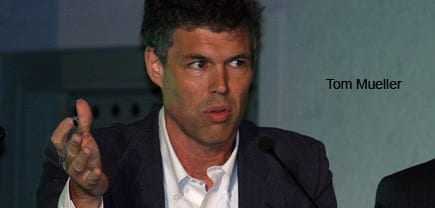
Author Tom Mueller, whose searing 2007 expose of olive oil fraud still reverberates in the industry, and whose very name on the conference program may well have kept a few brand name bigwigs in their Andalusian offices, was the first speaker.
Despite a forthcoming and highly anticipated book titled “Extra Virginity” that will reportedly uncover more naughtiness, Mueller’s speech was politely confined to calling for a common language for excellence. “Extra Virgin has no meaning,” he said, reasoning that Peri, Drescher and Pasquali, who all only recently became involved with olive oil, might be better qualified to draft the new language than industry insiders.
Listen to Claudio Peri’s opening remarks and Tom Mueller’s address here:
International Olive Council (IOC) Executive Director Jean-Louis Barjol, just months into his new appointment, is a friendly and capable man already held in high regard, even by a group with such disparate interests. And it’s that disparity, he admitted in an earlier meeting, that can sometimes keep initiatives grounded.
Barjol said during his brief address that olive oil packaging should provide more information “to make an oil more singular, so the consumer knows what they’re buying,” including, he added, food-pairing suggestions. Better label information should be a “priority for the sector,” Barjol declared, because “we have to underline not just the flavor profile, but the use of the olive oil. The objective is for the consumer to make informed choices.”
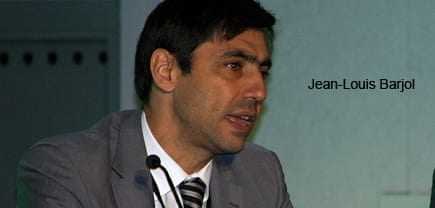
The IOC director invited countries who were not members of the international organization to “come in.” Earlier, Barjol said he would propose the implementation of a separate Mario Salinas Quality Award for producers in the Southern Hemisphere so they would not have to enter the prestigious IOC competition with olive oil that had been stored for months.
Excerpt of address by Jean-Louis Barjol and the beginning of the session on marketing and promotion moderated by Rocio Alberdi of ICEX:
Tom Mueller on how to get to American consumers:

Dan Flynn, whose Davis Olive Center has put out headline-grabbing reports critical of European olive oils and which garnered criticism in return for what some viewed as their selective messages and aggressive tone, presented modern methods used by the American high-density producer California Olive Ranch to illustrate that it was possible to make quality olive oil on a large scale.
Perhaps the presentations that got closer to the heart of the matter were those by the CIA’s Greg Drescher, Marie Jose San Roman and the other chefs who urged attendees to identify, apply and promote extra virgin olive oil characteristics in foods and on menus.
Adding value through the supply chain was the overriding message, and it just might be the only thing that can save a way of life for farmers and producers of olive oil everywhere. If only the eye-opening (and mouth-watering) culinary demonstrations could have been in front of a large group of foodservice professionals and influential chefs, they might have truly made the world a better place.
Aris Kefalogiannis is the founder and chief executive of Gaea, the vice-chairman of the Greek olive oil association SEVITEL, and the entrepreneur behind the groundbreaking partnership with the Kritsa Cooerative that lets Cretan farmers and producers concentrate on quality instead of marketing. Clearly one of those people incapable of doing anything halfway (he’s also an Olympic water polo champion), Kefalogiannis will organize next year’s conference (BEV6) in Greece, where once again the group will take steps to advance the 3E mission.
Showing colleagues photos of the final touches of a new Gaea culinary facility that will presumably present 3E-certified oils and provide instruction on their applications Kefalogiannis, who just might be the Mediterranean’s greatest olive oil marketer at the moment, showed that side and possibly a peek at a more practical motivation behind 3E when he exclaimed to other 3E organizers, “We need to get salespeople out in the market… or there won’t be a (BEV) seven.”
Outside on the terrace overlooking Cordoba, I chatted with the renowned chef and a presenter that day, Paul Bartolotta, who pondered how much he enjoyed the flavor of sesame as he snacked on seeded crackers left out by the caterers between sessions.
Bartolotta, who is my pick for the perfect celebrity chef spokesperson for olive oil in the United States, has a group of restaurants in Milwaukee but lives in Las Vegas near his namesake restaurant at the Wynn.
We talked about his fish tank — one of just a handful in the world — where langoustines are kept alive until just before being served to his guests.
But it was pure Milwaukee, when Bartolotta finally cut through the protocol and caution that abounded that day and said, “I’m sick of all the shit. I just want them to make good olive oil.”

